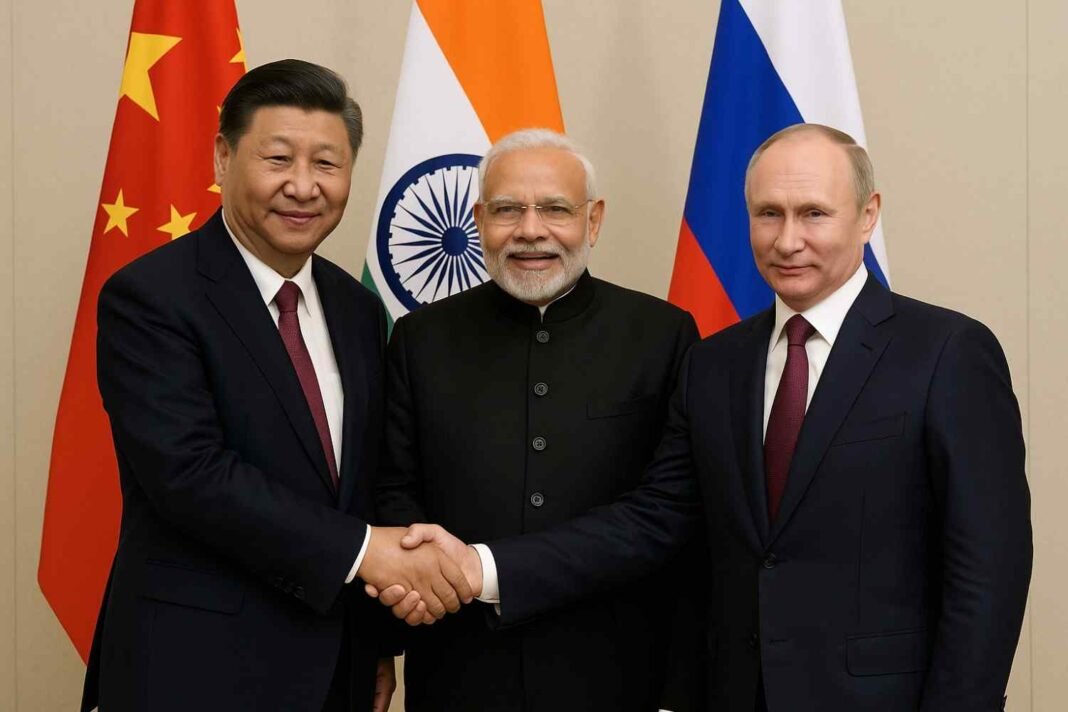Xi, Modi, and Putin Gather for Landmark SCO Summit
Chinese President Xi Jinping is preparing to welcome Prime Minister Narendra Modi and Russian President Vladimir Putin to Tianjin for the Shanghai Cooperation Organisation (SCO) summit scheduled for August 31–September 1. This event marks Modi’s first official visit to China in over seven years, underscoring a cautious thaw in India-China relations after the 2020 border clashes. With more than 20 world leaders expected, the summit is set to highlight a strong display of Global South solidarity at a time of heightened global tensions.
A Stage for Global South Solidarity
The SCO, founded in 2001, has grown into a 10-member bloc with 16 dialogue partners and observer nations. While its origins lie in Eurasian security cooperation, the organization has expanded its remit to include economic, counterterrorism, and military collaboration. This year’s gathering, the largest in SCO history, is expected to underline the bloc’s role as a counterbalance to Western-led forums.
Analysts suggest Xi will seize this opportunity to project China’s vision of a post-American-led global order. “Xi will want to use the summit as an opportunity to showcase what a new international framework could look like, where the Global South plays a more decisive role,” said Eric Olander, editor-in-chief of the China-Global South Project.
India-China Reset in Focus
For New Delhi, the summit comes amid delicate recalibrations. Following deadly border confrontations in 2020, relations between India and China deteriorated sharply. However, recent months have seen incremental steps toward normalization, including troop disengagements and trade dialogues. Modi’s decision to attend the summit is being viewed as a significant gesture toward advancing this détente.
“It’s likely India will set aside some of the SCO’s internal disagreements this year in order to maintain momentum in its rapprochement with Beijing,” Olander observed. Key announcements on troop withdrawals, easing visa restrictions, and cooperation in new areas such as climate change are anticipated.
Russia’s Diplomatic Boost
For Russia, grappling with international sanctions and Western isolation due to the war in Ukraine, the summit represents an important diplomatic platform. Putin is expected to leverage the event to strengthen ties with Asian and Middle Eastern leaders, projecting Russia’s resilience on the global stage. His extended stay in China following the summit, including attendance at a World War II military parade in Beijing, further highlights Moscow’s pivot toward Asia.
SCO Expansion and Persistent Challenges
The summit’s agenda will also touch on SCO expansion, with multiple countries signaling interest in closer ties. However, internal frictions remain. India and Pakistan’s longstanding disputes have repeatedly hindered consensus, most recently when New Delhi blocked a joint statement at the June defense ministers’ meeting over omissions related to a terror attack in Jammu and Kashmir.
Additionally, India has resisted aligning with certain SCO stances, such as the bloc’s condemnation of Israeli strikes on Iran earlier this year. These differences underscore the difficulties in transforming the SCO’s symbolic solidarity into concrete action.
Optics Over Outcomes
Despite its limitations, experts emphasize the significance of the SCO’s convening power. “What the SCO represents is still somewhat fuzzy in terms of practical implementation,” noted Manoj Kewalramani of the Takshashila Institution. “But its ability to gather leaders across the Global South makes it an effective stage for narrative building.”
While sweeping policy breakthroughs are unlikely, the optics of Modi, Xi, and Putin sharing a platform are expected to reverberate globally, particularly amid U.S. efforts to counterbalance China, Russia, and Iran.
The Road Ahead
As Modi departs Tianjin after the summit, both India and China are expected to signal cautious optimism about improving ties. Putin, meanwhile, will remain in China for additional engagements, further emphasizing Moscow’s strategic deepening with Beijing.
Ultimately, while the SCO may not deliver dramatic policy shifts, its symbolic power in redefining global alignments is not to be underestimated. For Xi, Modi, and Putin, the Tianjin summit represents not only a diplomatic gathering but also a powerful message about the evolving dynamics of the Global South.








